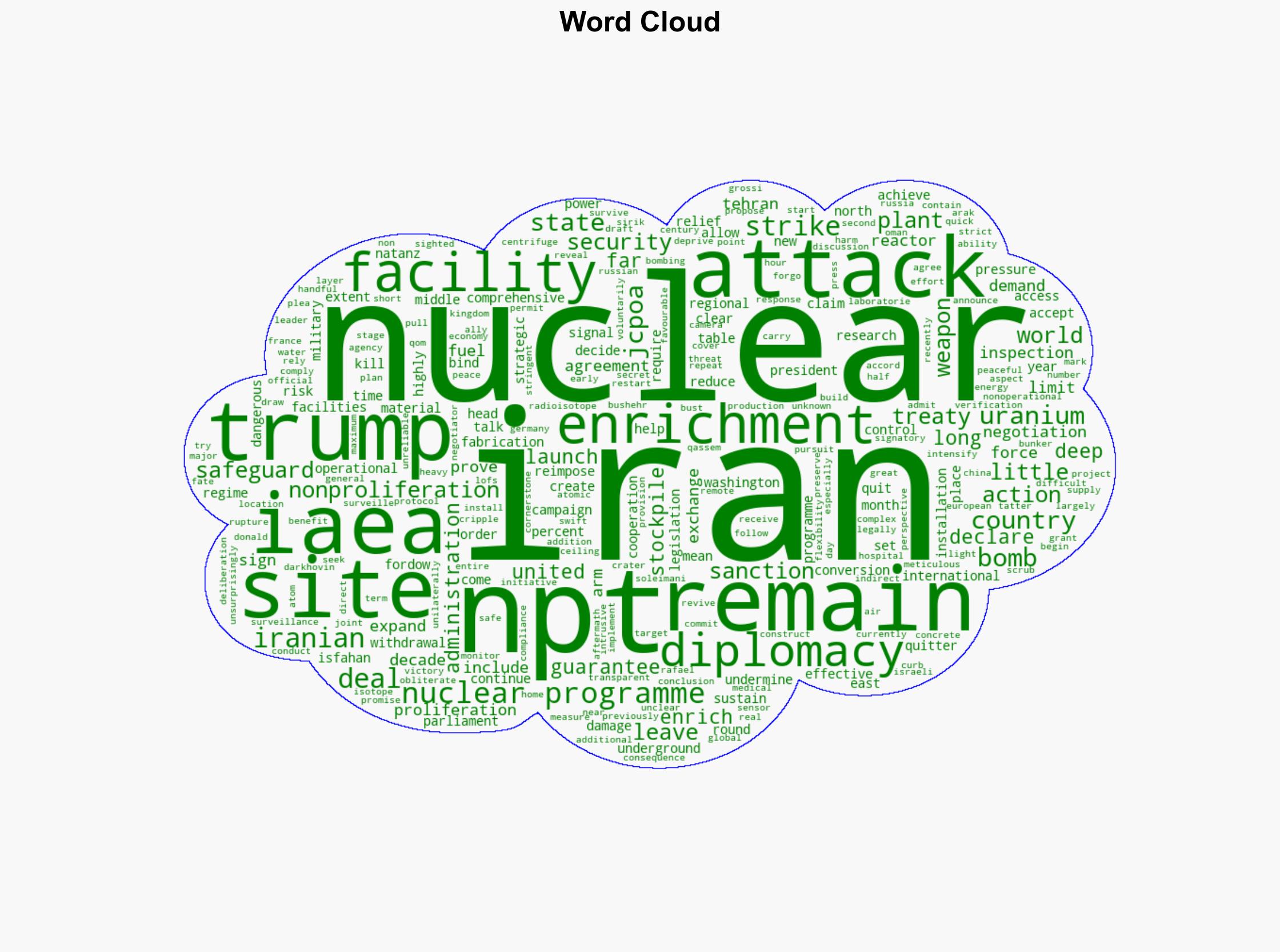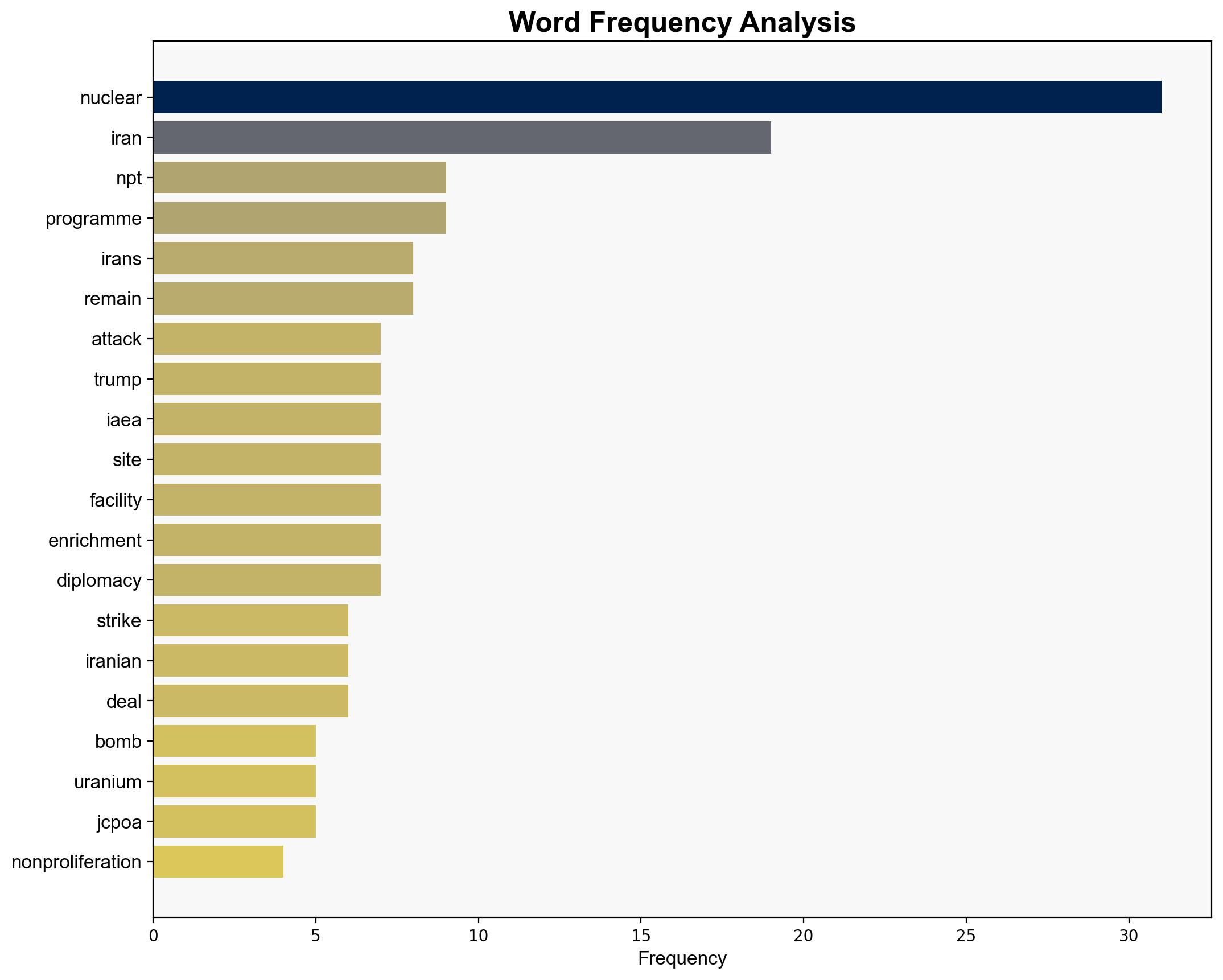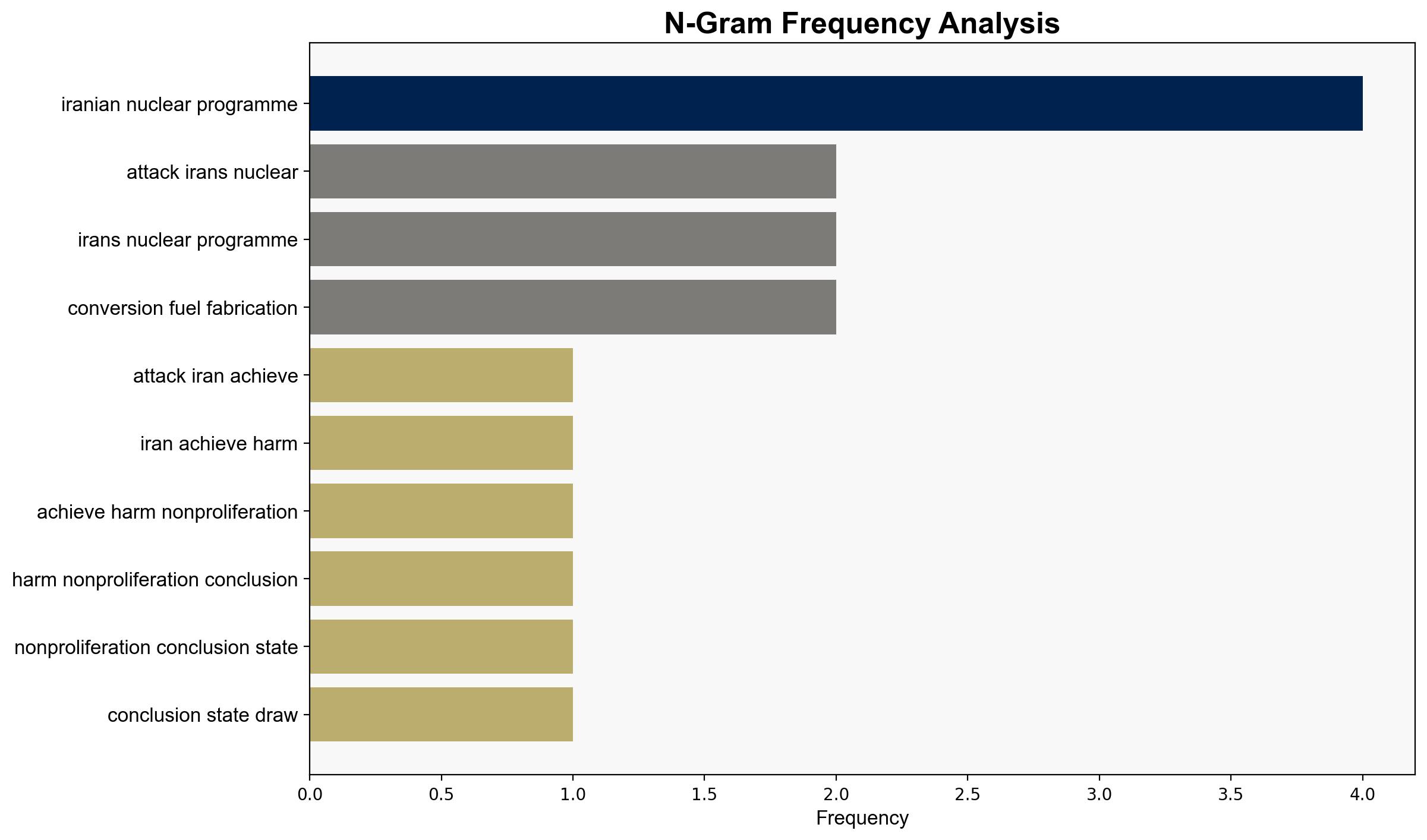The attacks on Iran didnt achieve anything more than harm nonproliferation – Al Jazeera English
Published on: 2025-06-30
Intelligence Report: The attacks on Iran didn’t achieve anything more than harm nonproliferation – Al Jazeera English
1. BLUF (Bottom Line Up Front)
The recent attacks on Iran’s nuclear facilities have failed to significantly degrade Iran’s nuclear capabilities while simultaneously undermining global nonproliferation efforts. The strategic miscalculation has heightened regional tensions and increased the risk of nuclear proliferation. It is recommended to re-engage in diplomatic efforts to restore and strengthen nonproliferation agreements.
2. Detailed Analysis
The following structured analytic techniques have been applied to ensure methodological consistency:
Causal Layered Analysis (CLA)
– **Surface Events**: The attacks were intended to disrupt Iran’s nuclear program but have primarily resulted in geopolitical tensions.
– **Systemic Structures**: The existing nonproliferation frameworks, such as the NPT and JCPOA, have been weakened, reducing their effectiveness.
– **Worldviews**: The perception of Iran as a nuclear threat persists, influencing international relations and policy decisions.
– **Myths**: The belief that military action can effectively prevent nuclear proliferation is challenged by the lack of tangible results.
Cross-Impact Simulation
– The attacks have strained relations with European allies who remain committed to the JCPOA.
– Regional actors may accelerate their own nuclear programs in response to perceived threats, increasing instability.
Scenario Generation
– **Best Case**: Diplomatic channels are reopened, leading to a renewed commitment to the JCPOA and enhanced verification measures.
– **Worst Case**: Iran withdraws from the NPT, escalating regional arms races and increasing the likelihood of conflict.
– **Most Likely**: Continued diplomatic stalemate with periodic escalations in military tensions.
3. Implications and Strategic Risks
The attacks have exposed vulnerabilities in the global nonproliferation regime, potentially encouraging other states to pursue nuclear capabilities. The risk of cyber retaliation and asymmetric warfare has increased, posing threats to regional stability and international security.
4. Recommendations and Outlook
- Re-engage in diplomatic negotiations to restore the JCPOA and strengthen nonproliferation measures.
- Enhance intelligence-sharing and cybersecurity cooperation with allies to mitigate retaliatory threats.
- Develop contingency plans for potential regional escalations and nuclear proliferation scenarios.
5. Key Individuals and Entities
– Rafael Grossi
– Donald Trump
6. Thematic Tags
national security threats, nuclear proliferation, regional stability, diplomatic negotiations





